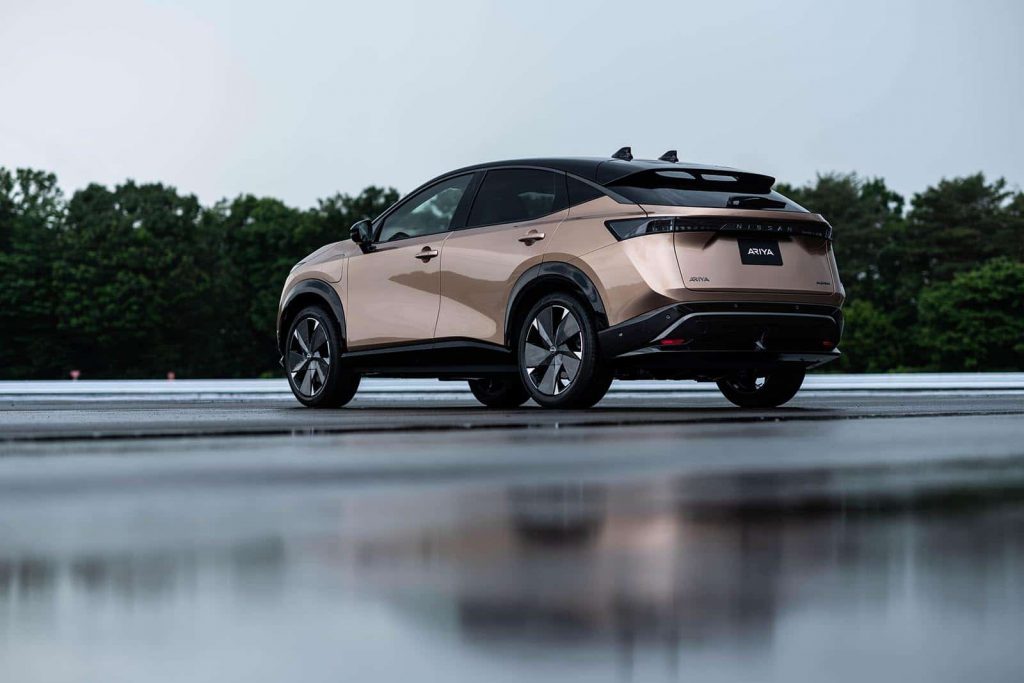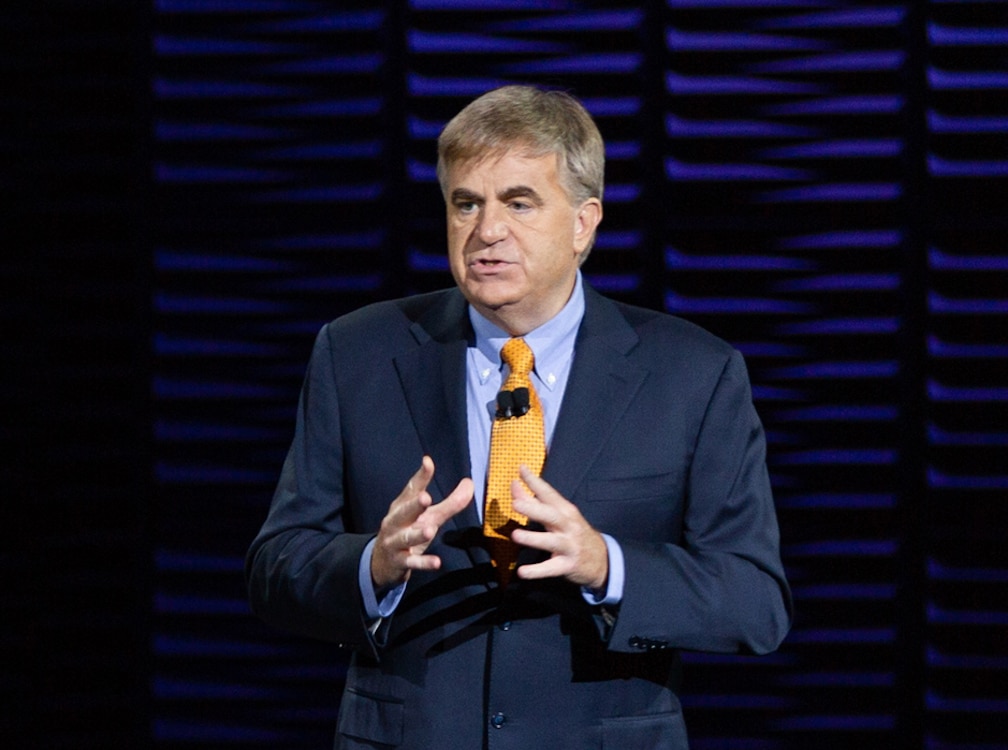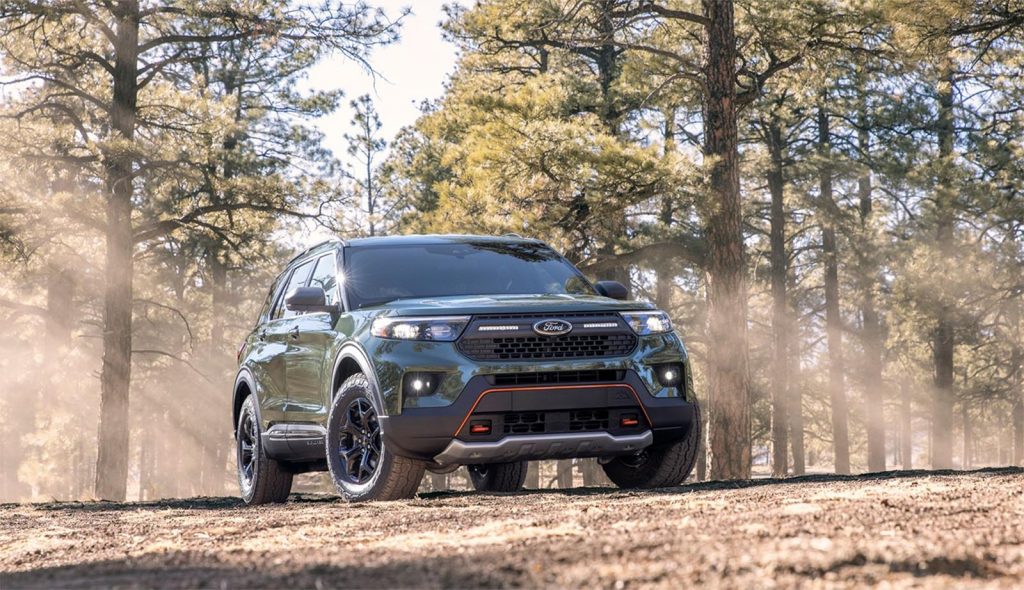Automakers continue to scramble as the shortage of microchips confounds plans to boost production during the second half of this year.
Nissan is the latest manufacturer to push back the launch of a major new product line, the all-electric Ariya now expected to debut in winter, rather than mid-year, a senior company official told reporters.

Ford, meanwhile, said it will give a $1,000 to some buyers who have been forced to wait longer than originally promised to take delivery of a new vehicle because of ongoing production cuts. The rebate covers a wide range of vehicles, including the Mustang coupe, the F-150 and the Bronco Sport.
The auto industry has been struggling for months to find supplies of the semiconductors used for everything from engine controls to infotainment systems. It’s not uncommon for today’s vehicles to have more than 100 microprocessors onboard. But chip supplies have become increasingly scarce.
An assortment of problems
The shortages have been blamed on a variety of factors — including a sharp cutback in orders during spring 2020, when the COVID-19 pandemic first hit and automakers expected vehicle sales to crash. After a sharp, short downturn, however, automotive demand rebounded sharply and the industry tried to restore previous orders. Unfortunately, chipmakers found new customers, suppliers of consumer electronics like smartphones, webcams and game consoles. Add to that a series of disasters that disrupted chip production.

So, where automakers normally like to maintain a 60- to 75-day supply of vehicles on dealer lots, that’s down to an industry average of around 30 — and falling. Toyota has barely 13 days of inventory available, auto operations chief Bob Carter told TheDetroitBureau.com this week.
“The truck drives up and the cars roll off and they’re already accounted for” by customers, Carter said during an interview at Toyota headquarters near Dallas.
The crisis has been especially hard on high-demand vehicles like pickups and SUVs. But it has also posed serious challenges for some of the new battery-electric vehicles coming to market this year. BEVs may use as many as 10 times more microprocessors than conventional gas and diesel models.
Nissan delays first new EV in a decade
As a result of the ongoing issue, Nissan will delay the launch of its all-new Ariya battery-electric SUV. It was scheduled to go on sale in Japan around the middle of this year, with the U.S. and Europe set to follow around two months later. Now, however, the Japanese launch will be pushed back to “this winter,” Nissan Executive Vice President Asako Hoshino told reporters. That means the BEV won’t reach American showrooms until early in 2022, and perhaps not until spring.
The delay is a setback for Nissan which launched the world’s first mainstream battery-car, the Leaf, more than a decade ago. Ariya is meant to help it catch up with competitors such as Tesla, that have raced ahead with multiple BEVs of their own.

More broadly, Nissan now expects to lose about 500,000 vehicles worth of production worldwide due to the chip crisis.
GM catches a break; Ford doesn’t
Virtually every manufacturer has struggled to deal with the chip shortages – though, as TheDetroitBureau.com today reported, General Motors says it has lined up supplies that will help it boost production of some of its hot-selling trucks, including the Chevrolet Silverado.
Ford has yet to lock down the chip supplies it needs. That was a major reason why the second-largest domestic automaker suffered a sharp decline in sales during an otherwise strong May.
Like other manufacturers, Ford is worried some buyers might cancel orders, perhaps shifting from an F-150 to a Chevy Silverado, if that model is available. So, to keep customers from bolting, it has launched a $1,000 Retail Order Bonus Cash Certificate. It’s retroactive to April 1, 2021 and will cover purchases made through July 6.
The program covers a broad range of Ford products, including the F-150, Mustang, even the Bronco Sport. Several models are notably excluded, however, including the all-electric Mustang Mach-E and the bigger Bronco that is set to come to market this summer.
A costly crisis
All told, a May report by AlixPartners estimated the global auto industry will lose about $110 billion in sales due to the chip shortage, nearly double what the consultancy forecast earlier this year. And it’s unclear how long the crisis will continue.
The Nissan Ariya is just one of many 2022 models that could be delayed, said Dan Hearsch, a managing director at AlixPartners, noting that, “There are simply going to be instances where they won’t be able to get all the parts” to bring some new models to market on time.







